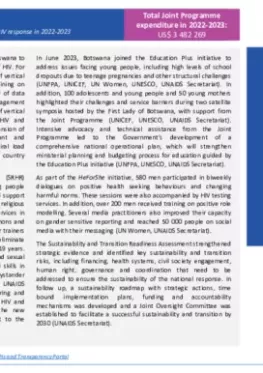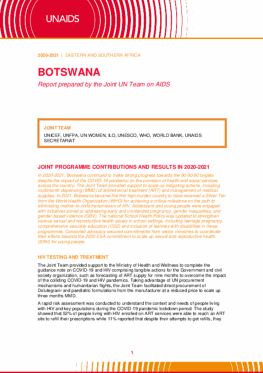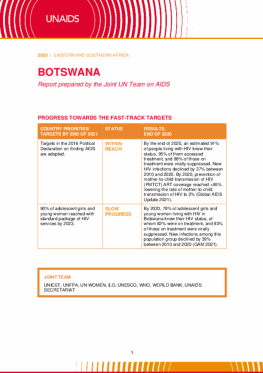|
Botswana
The Joint Programme continued its strategic support to Botswana to remain on the path to elimination of vertical transmission of HIV. For instance, 185 healthcare providers working on prevention of vertical transmission in 74 facilities received supervision and training on service delivery, while data clerks improved their capacity of data management and birth cohorts in five District Health Management Teams. A new road map for the certification of elimination of vertical transmission was developed; the national integrated HIV and tuberculosis guidelines have been revised to include expansion of pre-exposure prophylaxis (PrEP) services for pregnant and breastfeeding women; and a readiness assessment of viral load testing at Point of Care was completed to ensure the country remained on track to achieving the elimination.
Access to sexual and reproductive health and rights (SRHR) information and services among adolescents and young people improved in Botswana, thanks to the financial and technical support from the Joint Programme. For example, more than 80 religious leaders received training on SRHR and integrated these services in their religious programmes, including Sunday schools, sermons and youth programmes. In 40 schools, 290 teachers and teacher trainers were empowered to implement programmes designed to eliminate sexual and gender-based violence among students aged 12-19 years. Over 8570 students were educated on gender equality and sexual and gender-based violence. They also developed essential skills in areas such as communication for respectful relationships, bystander intervention, help-seeking, and peer support (UN Women, UNAIDS Secretariat). Additionally, a national harmonized monitoring and reporting framework for adolescents and young people, HIV and SRHR was developed; and data collection tools for the new framework were piloted in three sites through support to the National AIDS and Health Promotion Agency (UNICEF).




